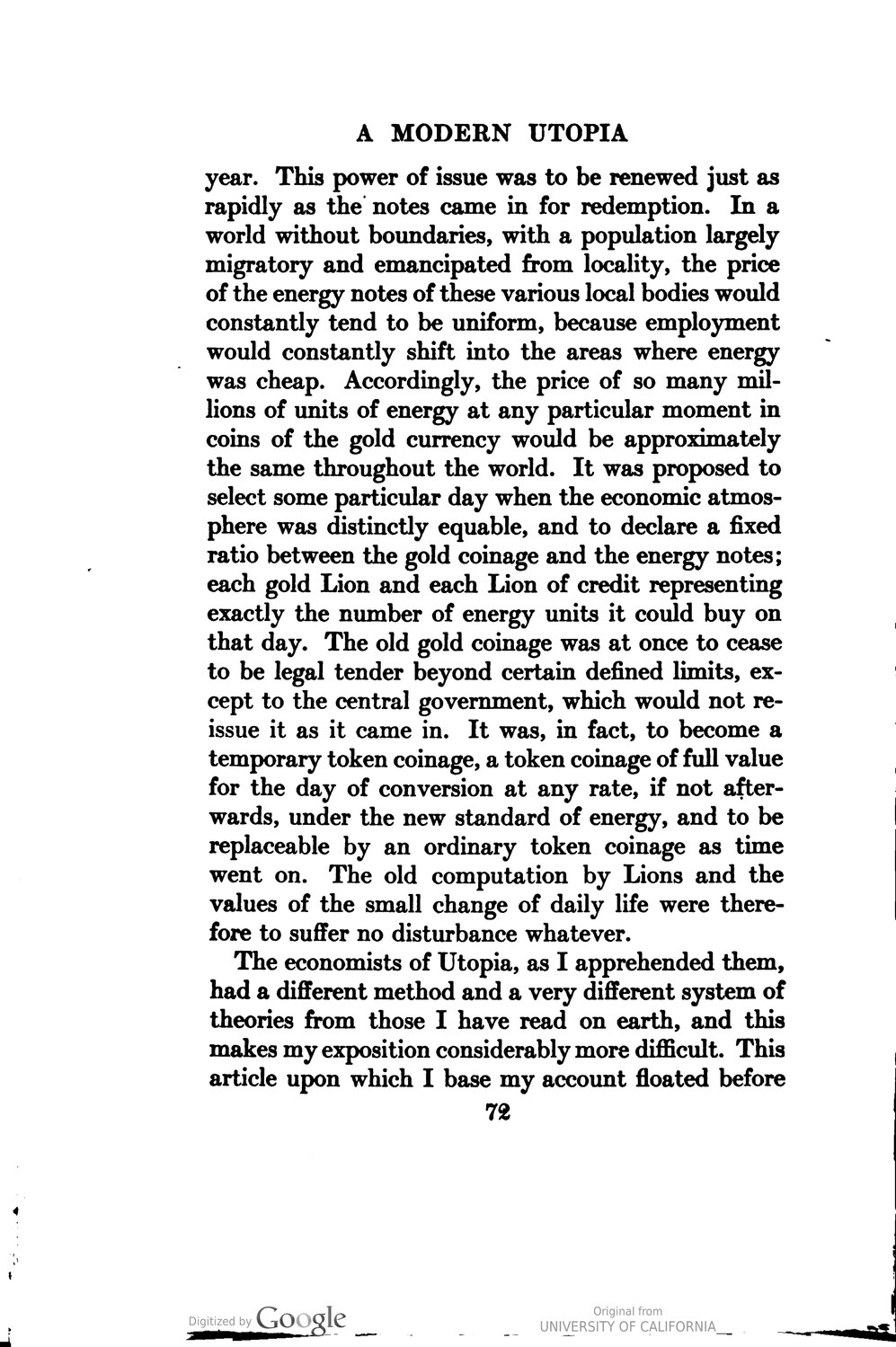A MODERN UTOPIA
year. This power of issue was to be renewed just as rapidly as the notes came in for redemption. In a world without boundaries, with a population largely migratory and emancipated from locality, the price of the energy notes of these various local bodies would constantly tend to be uniform, because employment would constantly shift into the areas where energy was cheap. Accordingly, the price of so many millions of units of energy at any particular moment in coins of the gold currency would be approximately the same throughout the world. It was proposed to select some particular day when the economic atmosphere was distinctly equable, and to declare a fixed ratio between the gold coinage and the energy notes; each gold Lion and each Lion of credit representing exactly the number of energy units it could buy on that day. The old gold coinage was at once to cease to be legal tender beyond certain defined limits, except to the central government, which would not reissue it as it came in. It was, in fact, to become a temporary token coinage, a token coinage of full value for the day of conversion at any rate, if not afterwards, under the new standard of energy, and to be replaceable by an ordinary token coinage as time went on. The old computation by Lions and the values of the small change of daily life were therefore to suffer no disturbance whatever.
The economists of Utopia, as I apprehended them, had a different method and a very different system of theories from those I have read on earth, and this makes my exposition considerably more difficult. This article upon which I base my account floated before
72
